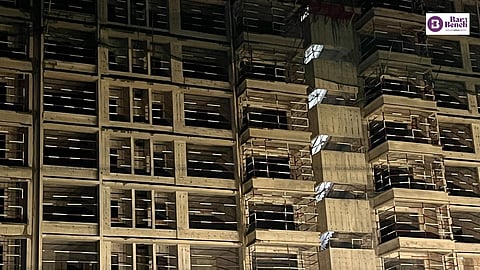
- Latest Legal News
- News
- Dealstreet
- Viewpoint
- Columns
- Interviews
- Law School
- Legal Jobs
- हिंदी
- ಕನ್ನಡ

Buying property without due diligence is like signing a contract without reading it. Behind the excitement of browsing listings or stepping into a new home lies a layer of paperwork, history and legal accountability. To avoid heartbreak, or worse, legal entanglements, a thoughtful and thorough review of a property’s legal status is essential.
Think of legal due diligence as running a fitness test before playing a match. You ensure that the foundations - from ownership to approvals - are strong before you invest your money and emotions. In technical terms, it involves verifying ownership documents, approvals, sanctions and permissions, digging for disputes and confirming regulatory compliance. But beyond process, it is about peace of mind and protecting what could be your life's biggest asset.
Start with the core legal principles of purchasing a new home. While buying property, it is imperative to procure original ownership papers dating back 30 years or more. Titles need to be clear, unambiguous and traceable. If the seller inherited the property, transmission/transfers should be legally documented. According to a recent landmark development, the Supreme Court of India has ruled and clarified that that registration alone does not imply ownership. Valid title deeds/documents matter above all else. That judgment is expected to pile pressure on registrations lacking occupancy certificates or layout approvals.
Encumbrance certificates offer another vital filter. They flag mortgages, liens, attachments or loans. Nearly one-third of all property-related court cases in India involve title disputes or hidden encumbrances. That represents roughly 20 per cent of all pending court cases, making property litigation one of the largest burdens on India's civil justice system.
India’s push for housing transparency gained legislative muscle with the Real Estate (Regulation & Development) Act of 2016 (RERA). Today, Maharashtra alone has registered over 50,000 housing projects. This accounts for nearly 35 per cent of all RERA approved projects in the country. For buyers, that means if your project is not RERA registered, proceed with significantly more caution. RERA listing confirms the builder has legal approvals, a track record and a public grievance mechanism.
Next, confirm the building plan approvals. Properties should have sanctioned plans, commencement certificates, occupancy certificates and any local NOCs such as fire, environment, sewage, etc. Buying without these is risky. It can lead to penalties, legal notices, legal impediments or even demolition orders.
Most buyers are comforted by the belief that financial institutions do the legal homework. Banks check title and KYC during loan approval. But they do not replace a complete legal audit in anyway. Engaging a qualified property lawyer early can help navigate nuances, verify documents on government portals, mortgages, stay orders/injunctions and launch litigation searches where needed. Physical property checks also matter. Survey the land, confirm boundary lines and ensure there are no encroachments.
If you are wondering why this level of detail is necessary, it is worth considering that India’s real estate sector shows promise with a projected 9.2% CAGR from 2023 to 2028. But growth brings crowded legal corridors. RERA adjudication has helped recover over ₹1,400 crore in cases in one state alone, safeguarding buyer interests. Properties tied to lapsed past approvals or developer delays continue to leave buyers stranded without recourse. It would be an understatement to say that diligence today reduces risk tomorrow.
In the exhilarating journey of homebuying in India, legal due diligence is the foundation upon which all other decisions stand. From title clarity and litigation checks to approvals and RERA verification, each step builds a safe, sustainable investment. With careful legal checking, a homebuyer’s investment becomes grounded in clarity and confidence. After all, legal oversight is not pessimism. It is the dutiful protection that every homebuyer deserves.
Hema Sukhija is the Vice President – Legal at Elan Group.